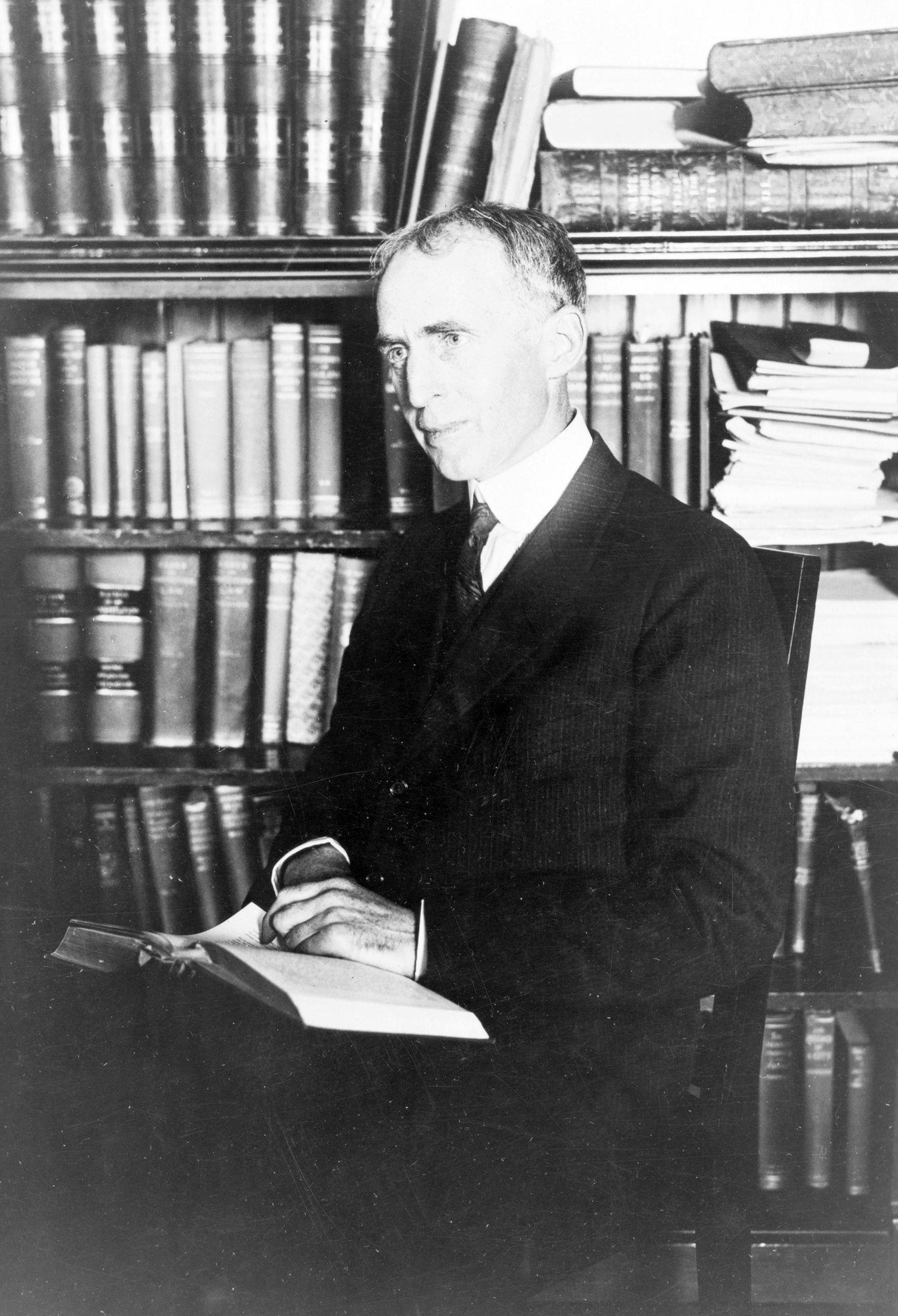“When it is dark enough, you can see the stars.”
Misattributed
Variante: When its dark enough you can see the stars.
Charles Austin Beard è stato uno storico, scrittore e sociologo statunitense.

“When it is dark enough, you can see the stars.”
Misattributed
Variante: When its dark enough you can see the stars.
Address to the American Political Science Association at St. Louis, Missouri (29 December 1926), published as "Time, Technology, and the Creative Spirit in Political Science" in The American Political Science Review Vol. 21, Issue 1 (February 1927), p. 11
Contesto: What hope lies anywhere save in the widest freedom to inquire and expound — always with respect to the rights and opinions of others? As my friend, James Harvey Robinson, once remarked, the conservative who imagines that things will never change is always wrong; the radical is nearly always wrong too, but he does insure some slight risk of being right in his guess as to the direction of evolution. It is in silence, denial, evasion and suppression that danger really lies, not in open and free analysis and discussion … everywhere there seems to be a fear of reliance upon that ancient device so gloriously celebrated by John Milton three hundred years ago — the device of unlimited inquiry. Let us put aside resolutely that great fright, tenderly and without malice, daring to be wrong in something important rather than right in some meticulous banality, fearing no evil while the mind is free to search, imagine, and conclude, inviting our countrymen to try other instruments than coercion and suppression in the effort to meet destiny with triumph, genially suspecting that no creed yet calendared in the annals of politics mirrors the doomful possibilities of infinity.
Address to the American Political Science Association at St. Louis, Missouri (29 December 1926), published as "Time, Technology, and the Creative Spirit in Political Science" in The American Political Science Review Vol. 21, Issue 1 (February 1927), p. 11
Contesto: What hope lies anywhere save in the widest freedom to inquire and expound — always with respect to the rights and opinions of others? As my friend, James Harvey Robinson, once remarked, the conservative who imagines that things will never change is always wrong; the radical is nearly always wrong too, but he does insure some slight risk of being right in his guess as to the direction of evolution. It is in silence, denial, evasion and suppression that danger really lies, not in open and free analysis and discussion … everywhere there seems to be a fear of reliance upon that ancient device so gloriously celebrated by John Milton three hundred years ago — the device of unlimited inquiry. Let us put aside resolutely that great fright, tenderly and without malice, daring to be wrong in something important rather than right in some meticulous banality, fearing no evil while the mind is free to search, imagine, and conclude, inviting our countrymen to try other instruments than coercion and suppression in the effort to meet destiny with triumph, genially suspecting that no creed yet calendared in the annals of politics mirrors the doomful possibilities of infinity.
The American Leviathan: The Republic in the Machine Age (1931) co-written with William Beard, p. 39
Contesto: If this statement by Judge Cooley is true, and the authority for it is unimpeachable, then the theory that the Constitution is a written document is a legal fiction. The idea that it can be understood by a study of its language and the history of its past development is equally mythical. It is what the Government and the people who count in public affairs recognize and respect as such, what they think it is. More than this. It is not merely what it has been, or what it is today. It is always becoming something else and those who criticize it and the acts done under it, as well as those who praise, help to make it what it will be tomorrow.
Origine: Philosophy, Science and Art of Public Administration (1939), p. 660-1
661-2
Philosophy, Science and Art of Public Administration (1939)
As quoted in The Administrative State (1948) by Dwight Waldo, p. 33
Origine: Philosophy, Science and Art of Public Administration (1939), p. 661
Origine: Philosophy, Science and Art of Public Administration (1939), p. 662
Origine: Philosophy, Science and Art of Public Administration (1939), p. 662
Administration, A Foundation of Government (1940)
Origine: Philosophy, Science and Art of Public Administration (1939), p. 661